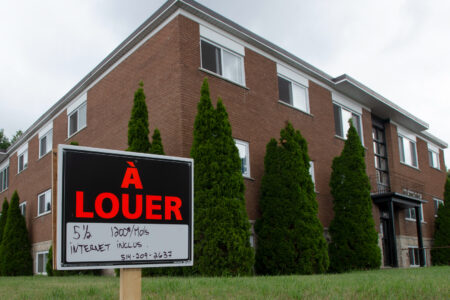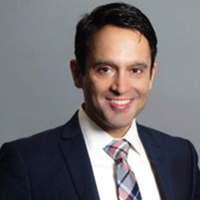
While Canadians may be isolated and socially distanced from one another during the COVID-19 pandemic, this shared experience has strengthened our relationships with our families, co-workers, employers, healthcare providers, local businesses – and even our governments (figure 1).
These are the results of the latest edition of the Argyle Public Relationships Index™, a national Léger survey that reveals insights about the psychological impact of this complex public health, social and economic crisis on the myriad relationships in Canadians’ lives.
Relationships with governments: A stunning turnaround
The improvement in our perceived relationships with our governments during the pandemic is dramatic:
- 55 percent of respondents report improvement in their relationships with their provincial governments, more than three times the number (18 percent) reporting a decline (figure 2).
- 46 percent cite improved relationships with Canada’s federal government, with just 26 percent citing a decline (figure 3).
- 41 percent say they have improved relationships with their municipal governments, more than double the number (20 percent) reporting a decline.
While history is full of examples of societies coming together in times of crisis – with goodwill often dissipating after the danger has passed – the data nonetheless reflect a stunning reversal in recent attitudes toward our leaders. This also contrasts sharply with the loud and widespread criticism of governments in social media during the COVID-19 pandemic.
All governments are not relating equally
Of course, this is Canada – and so views vary greatly across the nation. Quebec’s François Legault has achieved something remarkable: 74 percent of Quebecers believe their relationship with his government have improved during the crisis — more than 10 times the number (7 percent) who feel the relationship has soured.
At the other end of the spectrum is Alberta’s government, which has improved its relationships with 44 percent of its citizens, but harmed its relationships with 32 percent.
Justin Trudeau’s federal government is somewhere in the middle. While It has made gains with Canadians everywhere, the spectrum of opinion is wide — with bigger improvements in Atlantic Canada, Ontario and BC, modest gains in the Prairie provinces, and a smaller improvement in Quebec.
Three lessons for leaders
Our research contains several lessons for leaders.
First, relationship capital is a leader’s most valuable asset. It must be managed and measured.
Relationships matter – and they matter most in a crisis. More complex and enduring than satisfaction or approval ratings, a relationship is bi-directional. It combines rational assessments of competence and satisfaction with emotional dimensions such as empathy, affinity, influence and trust.
Second, relationships influence behaviour.
At times of crisis, Canadians look to governments and their leaders as sources of information, services, direction and reassurance. The first two are transactional; we may receive information, but will we believe it, and act on it? Will we follow directions, even when they are difficult to enforce?
The point is clear, as our research has shown in the past: the stronger the relationship, the more likely people are to believe their leaders, engage with them, and comply with their instructions. Arguably, nothing is more important to keep people safe, and to bring the crisis to an end faster.
Third, what leaders say and do in a crisis – and how they say and do it – builds relationships.
Consider the governments that led in our survey, and those that lagged. As I argued in a March 27 post about crisis leadership, leaders must show openness, competence, fairness, and empathy.
Lucien Bouchard, a former Quebec premier, is one of many who has been effusive in praising the province’s current leader:
“Mr. Legault has, with reason, earned the confidence of Quebeckers. And it’s not because he’s delivering good news. But he respects Quebeckers, tells them the truth and communicates his confidence to us … He has entered into a dialogue and involves the population in managing the crisis.”
While some leaders (including Mr. Trudeau, briefly) have taken a hectoring, scolding tone, the most successful ones have displayed calm, confidence and even flashes of humour under pressure.
Relationship success does not just come from what leaders say; it’s built from what they do.
Consider the recent actions of the two best-known conservative premiers. Last week, Alberta Premier Jason Kenney justified temporary layoffs of more than 20,000 education support workers on fiscal grounds: “The concept of paying for folks who aren’t working is very difficult with the billions of additional dollars we’re spending and the revenue floor falling out from underneath us.”
Faced with a similar choice about public sector layoffs, Ontario Premier Doug Ford took a distinctly human tack: “I gotta protect anyone who is not working, they have mortgages to pay, rent to pay. I’m not comfortable with laying provincial frontline people off.”
Values and actions must go together. Leaders who understand this will earn the relationships they need – and that we need them to have – to get through the crisis. And they just might bring us all closer together.
About the study: This edition of the Argyle Public Relationships Index™ is based on a survey of 1,590 Canadians, completed between March 27-30, 2020, using Léger’s online panel, LEO. The margin of error for the study was +/-2.5 percent, 19 times out of 20. Léger’s online panel has approximately 400,000 members nationally and has a retention rate of 90 percent.
This article is part of the The Coronavirus Pandemic: Canada’s Response special feature.
Photo: Shutterstock, by Lightspring.








